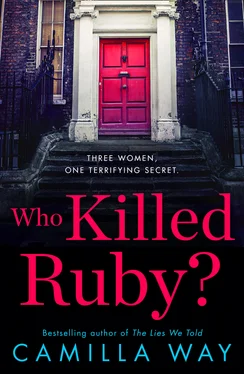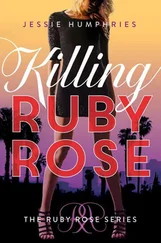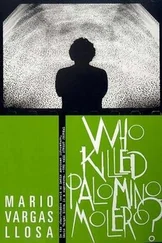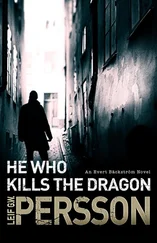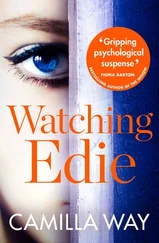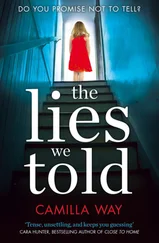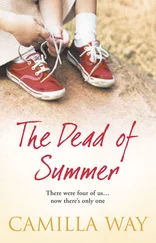Only her mother’s house stands out from the homogenized, sanitized crowd. Number 72 is a faded kaleidoscope of colours; the paintwork a peeling turquoise, the guttering a weather-beaten red, the door a washed-out yellow. In the front garden rainbow-striped windmill spinners tatty with rain and mud poke up through banks of weeds, and the bent browned husks of long-dead sunflowers bow before a brass sculpture of a naked woman, her breasts and belly green with the passage of time. A trio of wind chimes hang from the branches of a leafless sycamore, their music mingling with the rain.
As usual the front door rests on its latch and Viv pushes it open with a sigh of disapproval but steps into the light, high-ceilinged hall to feel the house’s familiar pull, its peaty, musty smell of boiling pulses; the spicy sweetness of sandalwood and patchouli, and she relaxes into its warmth and familiarity. Her mother runs a sort of boarding house for the waifs and strays of South London: the abused, the addicted, the lost and the lonely. Sent to her by local refuges, psych wards and rehab centres, her guests take up residence in one of the many light and airy bedrooms, some for a few weeks, others for a few months, until they are deemed fit to return home or are found a more permanent place elsewhere. The most cursory of glances reveals this is not a lucrative enterprise, yet somehow the house’s colour, character and atmosphere transcends the worn furniture, the splintering floorboards and grubby paintwork.
To the right of the hall is the kitchen and Vivienne enters it now to find her daughter Cleo seated at the large pine table, her head bowed over her school books, half of which are obscured by an enormous ginger tom lying supine across them, his vast furry belly vibrating with loud contentment. A lightshade made from many pieces of coloured glass throws rainbow squares across the wide, well-worn floorboards. The walls are covered in a jumble of art prints and black-and-white photographs, an Amnesty International poster, a framed Maya Angelou quote. Books crowd together on the shelves; texts on feminism and politics and spiritualism and psychology, and Vivienne doesn’t know if her mother has ever read these books, has never in fact witnessed her read any of them, but supposes that she must have, once.
She goes to her daughter and kisses the top of her head. ‘Where’s Gran? Sorry I’m late, Sammy popped in.’
Cleo looks up at her distractedly, her school tie tugged half out of its knot. ‘That’s all right. Can we go home now? I need to—’
She’s interrupted by the appearance of her grandmother. Stella seems to sail rather than walk into any room she enters. She’s an impressive sight; tall and statuesque, her long grey hair dyed a faded magenta. She wears a voluminous kaftan in shades of green and red with a necklace of brightly painted African beads. She’s in her mid sixties but, rather like her home, the heady mix of colour and flair surpasses the general wear and tear of age and one is aware only of her attractiveness.
Stella’s voice is deep and rich, and seeing her daughter she says, ‘Oh, hello, darling. Now, I came in here for something, but I have absolutely no idea what it is.’ She wanders over to the stove to poke at something simmering there with a spoon. ‘Would you like some nettle and elderflower tea? It’s homemade.’
They are alike, physically, although at five foot six Viv doesn’t quite have her mother’s impressive stature, something she’s both relieved and a little regretful about. ‘Christ, no,’ she says, then takes a seat and asks, ‘who’ve you got staying here at the moment, anyway?’
‘Just four: a new woman came last night, the others I think you’ve met – we still have Shaun, of course.’
She says the name fondly, just as Vivienne inwardly shudders at the mention of Stella’s long-standing guest. Hastily she turns back to her daughter. ‘Did you manage to finish your project, love?’ she asks.
But before Cleo can reply, Stella interjects with a crisp, ‘I doubt it. She’s spent most of her time fiddling with that phone of hers.’
As if on cue, Cleo’s mobile pings and she snatches it up eagerly, while Stella sighs.
Vivienne has noticed a hint of discord recently, like a cold draught blowing between her daughter and mother. It’s nothing she can put her finger on, just an occasional, troubling tension that she’s not entirely sure she’s imagined. She looks at Cleo, tapping furiously on her phone, her school books abandoned. She doesn’t share her and Stella’s pale skin, dark hair and violet-blue eyes, but instead has the same strawberry blond curls, the creamy, freckled complexion and wide, pale green eyes of Ruby. In fact, in recent months a passing expression or angle of Cleo’s face will bring Viv’s dead sister back so vividly that it sometimes makes her heart stumble. Perhaps that’s what’s behind the occasional frost she detects in her mother’s tone when she talks to her granddaughter: perhaps pain is at its root; the three of them have always been so close, after all.
Stella’s landline rings and she picks it up to embark on a long and involved conversation about a mindfulness workshop she’s hosting, and a few minutes later a young woman comes in, dark-haired and painfully thin, her small awkward frame a collection of sharp angles clothed in black. She startles at the sight of Vivienne, her eyes darting from her to Cleo with a look of panic as she backs away. ‘No, please don’t go,’ Viv says gently. ‘Are you OK? Would you like something?’
The woman plucks anxiously at her skirt. ‘No. I …’ She turns to leave, but just then Stella hangs up the phone and goes to her. ‘Jenna, how are you feeling?’ She puts an arm around her. ‘Headache gone now, is it?’
Visibly relaxing, she looks at Stella gratefully. ‘Yes, thank you,’ she whispers. ‘I thought I’d make a cup of tea.’
She has that effect on people, her mother, on the waifs and strays that she collects, has always collected, in one way or another. They all adore her. Even before she turned this house into a refuge, they would find her, seeking her out, sensing within her a place of comfort and safety. Viv watches as the young woman is steered towards the kettle, Stella’s hand upon her shoulder.
Cleo looks up to check that her mother’s attention is elsewhere, then turns back to her phone. It vibrates to indicate there’s a new message, and her heart leaps.
Cleo?
Hey.
Hey. Where were u yesterday? Missed u.
She stares at the words in surprise. He’s never said anything like that before. Had to do something with Mum, she writes.
K. Wot u up 2?
Nothing much. Homework. 

She beams back at the little smiling face. They met on a Fortnite board on a gaming site a few months back. It’s only recently they’ve begun private messaging. His name is Daniel and he’s a year older than she. He’s told her he lives near Leeds and she’s told him she’s in London. Yesterday he sent her a picture of himself – a blond-haired boy smiling shyly beneath a beanie hat – and she’s been thinking about him ever since.
U there?
Yeah.
Thought I’d scared U off wiv my pic. Lol.
Course not. It’s nice.
Thanx. U got one?
She hesitates, but nevertheless her thirteen-year-old heart feels a thrill of excitement. Maybe, she writes. She glances at her mum, sees that she’s watching her, and hastily drops the phone.
‘Who’s that you’re texting, love?’
‘Just Layla.’ She’s a bit scared how easily the fib trips off her tongue. She doesn’t usually lie to her mum, or that is, only about how many sweets she’s had, or if she’s got any homework to do. But her mother only nods and turns back to the weird thin lady who looks terrified of everything.
Читать дальше
